Like so many queer origin stories, Red Clover Tattoo Collective’s start began with folks who admired one another’s art/practice from afar (social media), found that they shared community values, and identified a personal and community need in Madison’s tattoo and artist collective scene. While there are several tattoo shops in Madison, and a few artist collectives, there was a distinct lack of visibly queer owned/operated tattoo and artist collectives that are typically seen in other similarly situated progressive cities, especially considering the large population of LGBTQ+ people and the large arts community.
Red Clover Tattoo Collective (RCTC) is a 50% Native-owned and 100% queer-owned tattoo and artist collective. Many of the artists are also transgender, nonbinary, and/or genderqueer, BIPOC, disabled, and neurodiverse. RCTC is currently located at 931 East Main Street in the Main Street Industries complex, in the same building that houses the queer-owned brewery Giant Jones. This location offers a large, secure, accessible, and private space that caters to RCTC’s by-appointment-only model. The space is warm and inviting with walls filled with art, books, and culturally relevant items and ephemera.
Prior to the move to Main Street in August of 2023, RCTC* was located in a smaller and less accessible space at 1236 Williamson Street that opened in late summer 2020. The move to the current location was prompted by the need for a larger and more accessible space due to RCTC’s values of accessibility, comfort, and care, as well as the growth of their artist collective and their apprenticeship program. RCTC currently has four owner tattoo artists: nipinet, Bear, Mar, and Ari; four artists/apprentices: Harlowe, Lucia, Caitlin, and Glory; and a recently added microblading artist Aku.
*RCTC was formerly known as giige with the opening of the tattoo and artist collective reported on in August of 2020 by Tone Madison via Holly Marley-Henschen.
Community Within COVID
Opening a tattoo and artist collective during a global pandemic was difficult in many ways, and also, the artists shared that they found that the transition to incorporating more Covid safety measures was not as difficult as navigating the ever-changing guidance and surge levels, as the process of tattooing involves several safety and sterilization measures, such as using sanitizer, gloves, regular hand washing, and of course using sealed needles and fresh ink pots for every client, using protective barriers on tattoo machines and regularly sterilizing surfaces that come into contact with clients.
Additional safety measures that were implemented and still utilized include requiring masks for all artists and clients, the addition of air purifiers in the space, requiring negative Covid tests, and requiring folks to reschedule their appointments if they are sick. The artists shared that they appreciated that the collective opened during the pandemic as it offered them the opportunity to deepen their relationships with one another, build community with other Covid-conscious folks, and create intentional safety precautions and procedures.
It also gave them a place outside of their homes to be in community with folks with shared values, especially regarding Covid safety and precautions. And while there have been folks who have cycled in and out of participation in the collective since inception for various reasons (typical of most collectives), the core artist/owners and their vision and values have continued to grow while centering intention, care, sustainability, and liberation.
Addressing Industry Issues
One of the core values of RCTC is the desire to create a tattoo and artist collective that actively works to dismantle the toxic and harmful values/norms that the artists experienced as tattoo apprentices, either directly from their mentors or conveyed to them by their clients. They aim to create and grow a space that honors tattooing traditions across cultures, honors the artist/client relationship, centers access, intention, care, communication, consent, autonomy, agency, and offers a space that is inviting to those who had bad experiences, have been alienated from mainstream tattoo shops, and/or have otherwise had unsafe tattoo experiences.
Many marginalized folks are terrified to get into and/or stay in the tattoo industry due to the prevalence of toxic practices regarding consent, agency, artistry, bodily exposure, incidents of harassment and assault, and lack of access and accommodations for folks who are not cisgender men, heterosexual, white, and/or abled. It is also important for the collective to share anti-capitalistic, anti-colonial, and liberatory values for all marginalized folks, especially prioritizing and centering BIPOC, queer, trans, disabled, and socio-economically disenfranchised folks.
Although anti-capitalist values in a business may seem counter-intuitive, RCTC looks at how to disrupt the status quo through shared power, shared values, consistent communication, and shared decision-making. There are no set hours that artists are required to work each week, as they are given autonomy over their schedule and work/life needs.
Artists are paid for the work that they do individually while a predetermined percentage is recovered as the “shop cut” that is used to pay for rent, utilities, supplies, professional development, events, and other such things that benefit all of the artists. If the “shop cut” results in a profit, those funds are given back to the artists, as the purpose of the “shop cut” is to cover the essentials and sustain the space/needs of the collective. Apprentices are paid a living wage and contributions to the “shop cut” are carefully considered within the context of socio-economic barriers.
Additionally, each artist offers two free tattoos for BIPOC folks each month, as a way to connect with culture and community, pay reparations, and recognize the socio-economic barriers that prevent access to tattoos for BIPOC folks. Tattoos are offered on a sliding scale, and monetary constraints can be taken into consideration on a case-by-case basis, especially when planning larger and more expensive pieces.
RCTC artists also participate in fundraising opportunities and mutual aid projects throughout the year. The mutual aid projects are led by nipinet, and while RCTC funds are not used to support these projects, the collective works to support nipinet as much as possible by making the RCTC space available as an organizing hub and through sharing information about the projects across their personal social media. Most recently nipinet has been involved in raising art donations, funds, and goods to support a Two-Spirit Care Package project that will be providing culturally relevant, customized care packages to Two-Spirit youth across the so-called United States.
An Accessible Space
RCTC emphasizes the desire to create as accessible a space as possible for all folks. Face masks are required at all times. If an artist or client is ill, the appointment will be rescheduled with no penalty. Tattoo artists and apprentices use massage tables that are comfortable for folks of all weights and sizes, unlike traditional tattoo chairs. Accessible parking is available, there are no stairs at the entrances, and the space can be navigated easily using mobility devices. RCTC offers comfort items such as pillows, blankets, books, and stim toys. Other accommodations are welcome and appreciated upon request (such as scent sensitivities, allergies, medical conditions, etc.). Food and water are available if needed, and active consent is considered at every step of the tattoo process.
The artists recognize the power dynamics involved in tattooing and that getting a tattoo puts the client in a vulnerable position, therefore open communication in all aspects is not only welcome but highly encouraged. The artists emphasize communication and consent in all aspects of the process, including asking for permission before touching, drawing, placing stencils, being mindful and open about how much of the body needs to be exposed and proper placement of the tattoo, being mindful of the time the tattoo will take and ensuring that breaks are part of the session, and welcoming the use of bactine or other lidocaine gels for pain management. They recognize that people can feel pressure to please the artist, so they don’t speak up when they are uncomfortable or the stencil is not placed correctly, or if they even need a break. Artists at RCTC implore clients to speak up and be active in the tattooing process.
The shared goals of the artists at RCTC, for themselves and their clients, are to do what they can to avoid the “bad tattoo” and the “bad tattoo experience.” This requires relationship building, trust, and care from both the artist and the client. RCTC artists welcome feedback and accountability, as well as the desire to resolve any issues that may arise, whether those issues come from the client or the artist, as accountability in the tattoo artist/client relationship must be reciprocal and considerate of all the power dynamics involved. Many of RCTC’s policies and practices, as well as their Client Bill of Rights, are inspired by the book Could This Be Magic? Tattooing as Liberation Work, by Tamara Santibañez, which offers well-defined liberation practices for tattooing and guidance for navigating issues as they arise for both the artist and their clients. As a bonus, this book is available as a free PDF online.
Practicing an Artform
Unlike other tattoo shops, RCTC does not offer “walk-ins” and does not contain walls of standard/popular/borrowed tattoo flash for clients to choose from. All of the flash that they offer is created by the artists and made available to clients on either a limited basis (designs that are only available to one person) or as repeatable flash (designs that are available to more than one person). RCTC also offers custom designs and prioritizes cultivating a collaborative atmosphere over the capitalistic predilection to make as much money as possible by tattooing as many people as quickly as possible.
Each artist has their own art style and subject matter preference for taking on custom tattoos. The collective values tattooing as a co-creative process and wants to ensure that their clients are given every opportunity to have as much agency and autonomy in the tattoo process as the artist is given. However, RCTC tattoo artists are selective about the work they will take on and carefully consider requests for work produced by outside artists and culturally significant tattoos. The consultation process is extremely helpful in determining whether your custom ideas are aligned with the artist’s style, expertise, and interest.
Centering Community & Collaboration
The artists at RCTC recognize that change does not occur in a vacuum or a bubble, and they are very fortunate to have found support within the collective, the Madison tattoo artist community, as well as within other tattoo and artist collectives around the country. In speaking with the apprentices and their mentees, there is so much joy and care in the collaboration, as well as pride in what they co-create as a collective. RCTC is truly supportive of one another and seeks to extend that support and collaboration with others who share their goals and values.
In the spirit of learning, growth, and collaboration, RCTC is always looking for opportunities to collaborate with others in the tattoo community and encourages artists to reach out if they are interested in talking shop and/or having a guest spot, as they love hosting guest artists. If you are interested in collaborating please reach out via email to [email protected].
For more details on RCTC, including bios of the artists, booking information, links to find the pictures of their work on social media, as well as other ways to support their work visit redclovertattoocollective.com.
Lucia – Tattooing for 5 months
I’ve started with a neo-traditional type style to start dipping my toes in the art of tattooing. I enjoy making art with horror themes and things found on the land: plants, animals, etc. I’m currently very excited to progress my craft and thoroughly enjoy tattooing.
What do you not tattoo? I steer clear from culturally specific tattoos that are not from mine or my client’s culture. I’m still learning which styles are most enjoyable for me to tattoo; at the moment I am happy to challenge myself with different styles and themes.
Harlowe – Tattooing for 8 months
I love doing abstract wavy styles and playing with texture and line weights. I’m excited to do much larger full-body pieces.
What do you not tattoo? I don’t do photo realism or realism.
nipinet – Tattooing for 6.5 years
Blackwork and bright color! I love Ojibwe florals, goth and horror designs, color gradients, woodcut designs, and abstracts. Anything that honors a connection to land and place and culture is right up my alley, but I also love a good old massive sword.
What do you not tattoo? Black and gray realism, portraits, floral arrangements, other people’s styles.
Aku –Microblading since November.
Microblading is a semi-permanent tattoo process practiced to sculpt and enhance eyebrows to frame one’s face naturally. I am ecstatic to build new connections!
Glory – Tattooing for 7 years
I prefer large scale, black and white designs centering elements of the natural world with an emphasis on the beauty to be found in the macabre. I also love to do large-scale ornamental and abstract designs like bracelets and necklaces.
What do you not tattoo? Portraits, swastikas, full color work
Ari – Tattooing for 3 years
I love doing illustrative realism, detailed fine line work, and manga-style tattoos. I’ve been starting to get into color realism with a painterly approach and would love to do more!
Subject matter I’m always interested in: Vulture culture (taxidermy/entomology), human/animal hybrids (mythical creatures), organic abstraction, full-color botanicals and insects, Manga-inspired (either a panel recreation or custom characters), little critters doing human things, cats.
What do you not tattoo? American traditional, lettering or text without imagery, anything culturally appropriative, anything pro police, military, or hate symbols, direct copies of other tattoos, and direct copies of other artists’ work without direct consent and compensation for that artist.
bear – Tattooing for 6.5 years
I think my style falls into the illustrative/neo traditional genre, but I also do some fine line and black work designs on occasion.
I’m always interested in occult, celestial and natural imagery, anything art-nouveau or art deco, queer iconography, pop culture references, and memorial tattoos. Lately I’ve been really into full-color pieces highlighting or including florals and have been wanting to do more large-scale art nouveau designs that flow with and highlight the natural human form.
What do you not tattoo? Hate symbols, custom lettering, and designs not from the clients’ cultures or appropriated designs
Mar –Tattooing for 9 years
Mar’s work is largely illustrative, featuring themes of nature, folklore, and personal metaphor. Their line work is delicate, often fussy, and their color is typically muted. They love designing with the body so pieces move and flow with muscles, fat, and joints. Right now they are in love with tattooing birds, fish, and figures in a style similar to golden age illustrators like Florence Harrison and Henry Justice Ford.
What do you not tattoo? Mar won’t take on projects from outside their culture unless guided by a client from that culture. They‘ll happily refer clients to talented local artists (in RCTC and out) for cultural tattoos, American traditional, portraits, and anime tattoos.
Caitlin – Tattooing for under a year
Ojibwe florals & American traditional styles
What do you not tattoo? Fine line work.

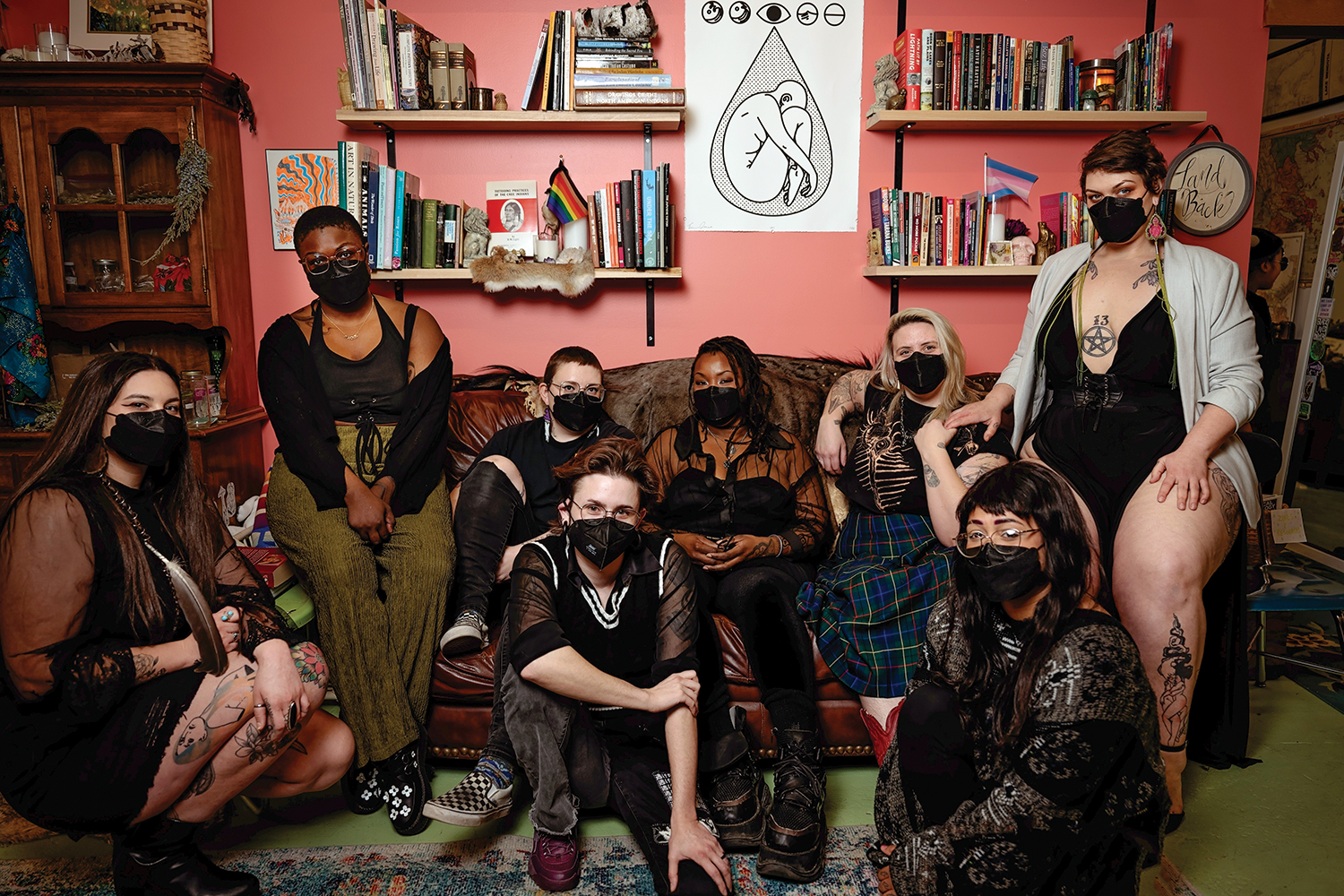

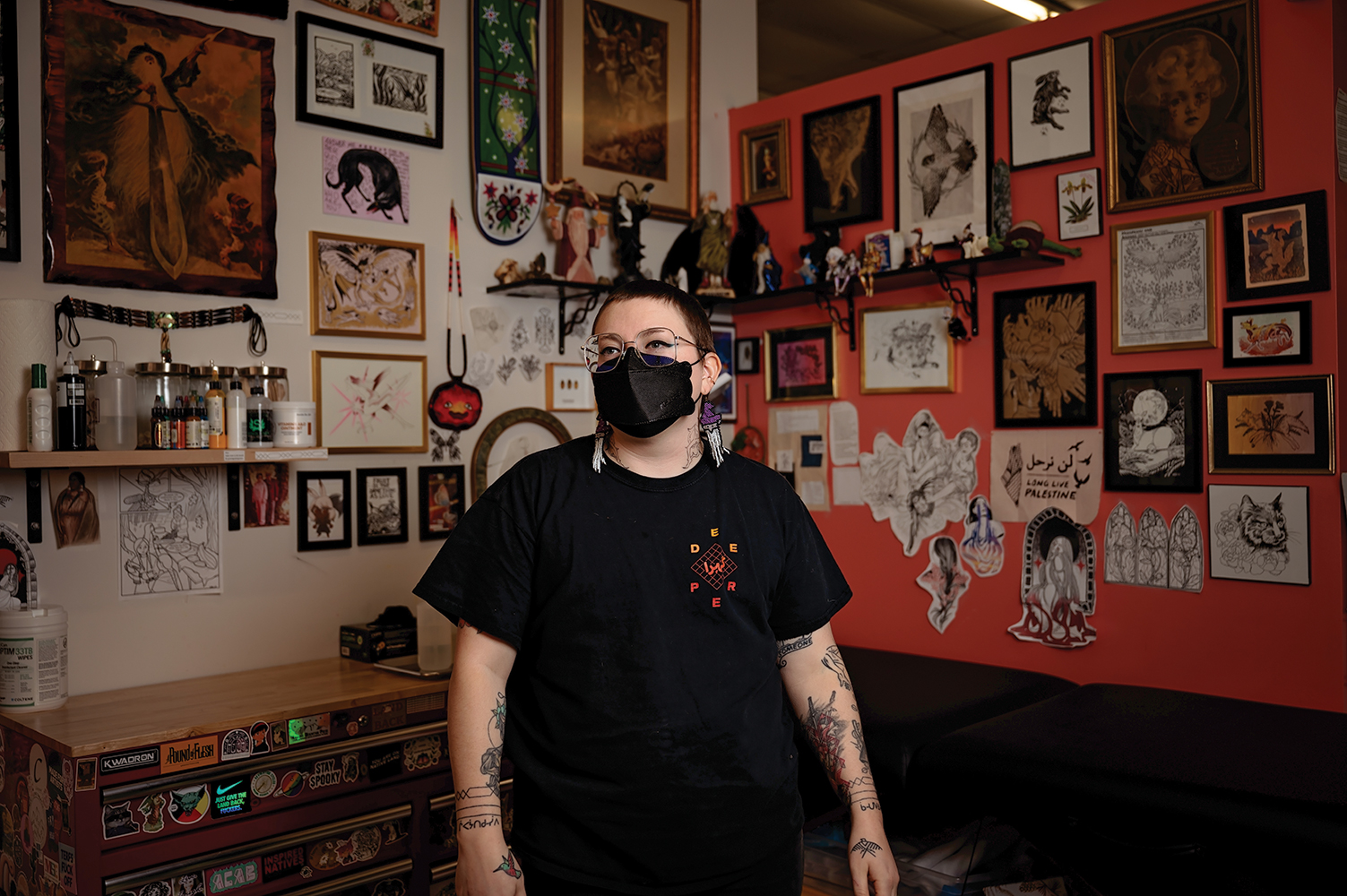

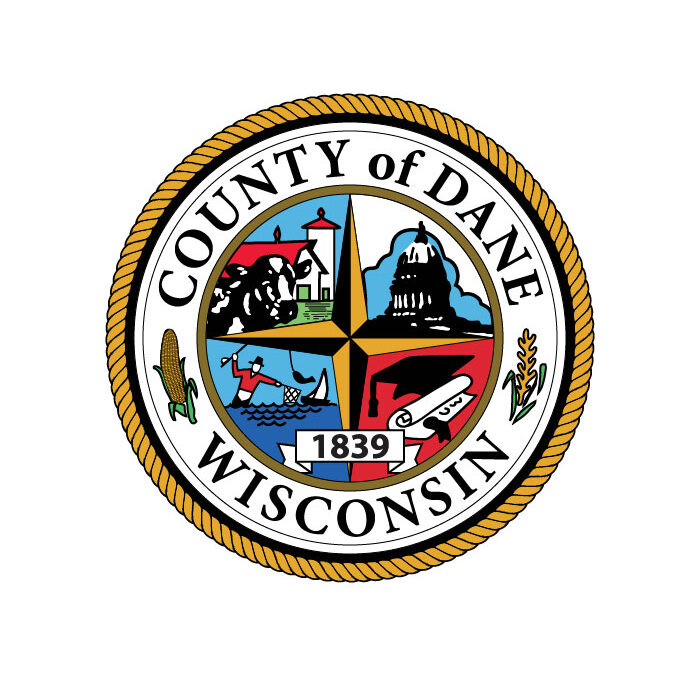
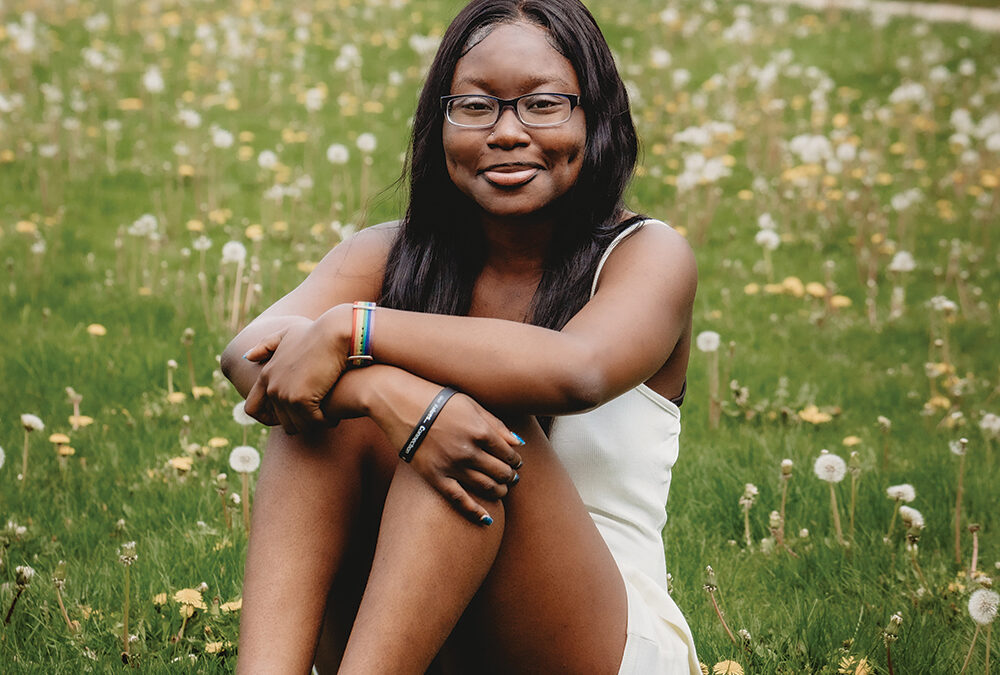
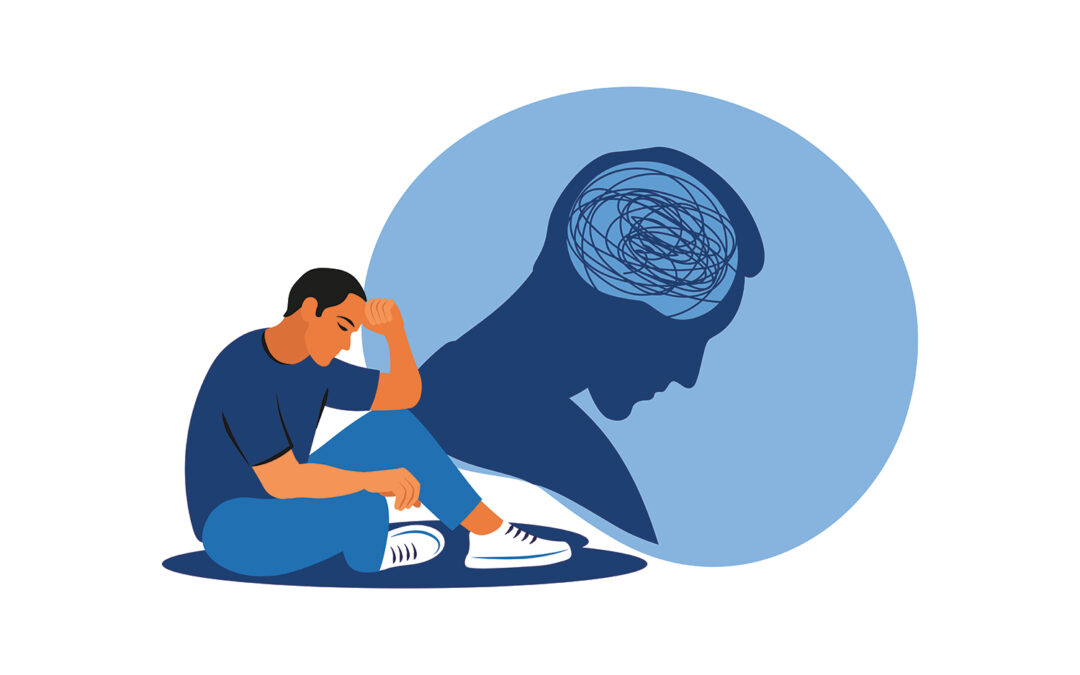
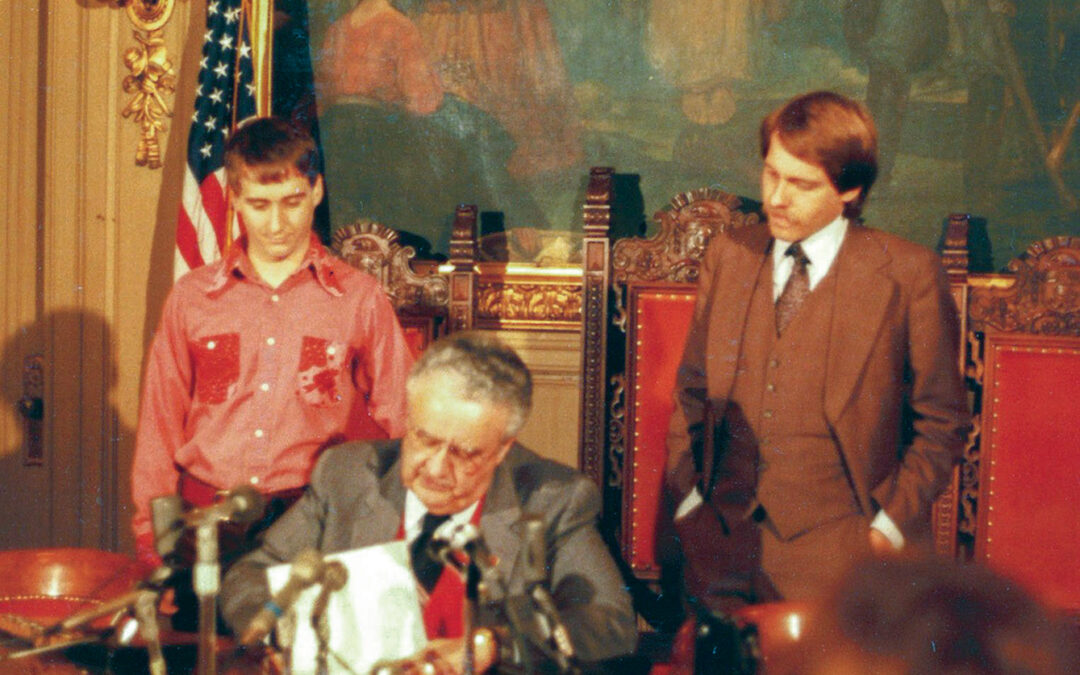
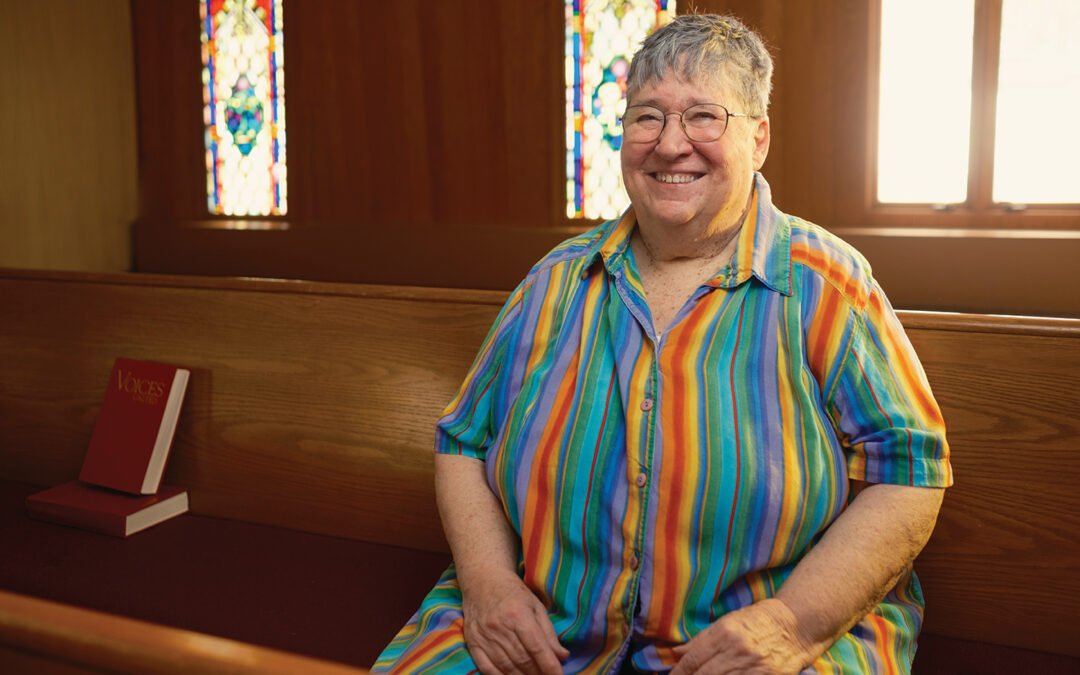
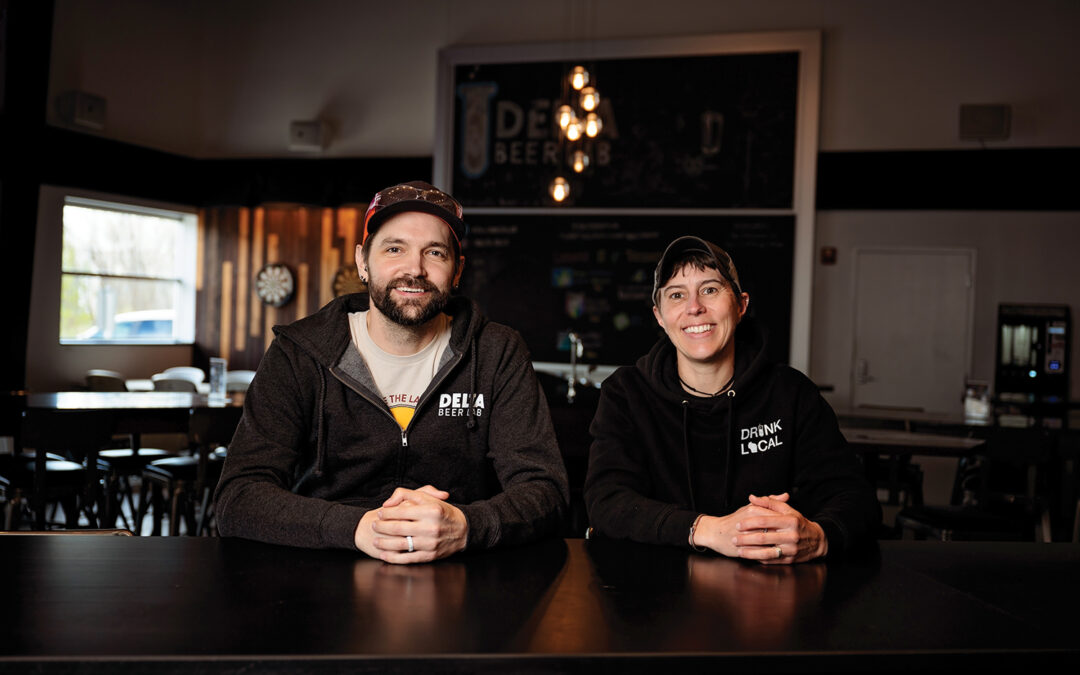
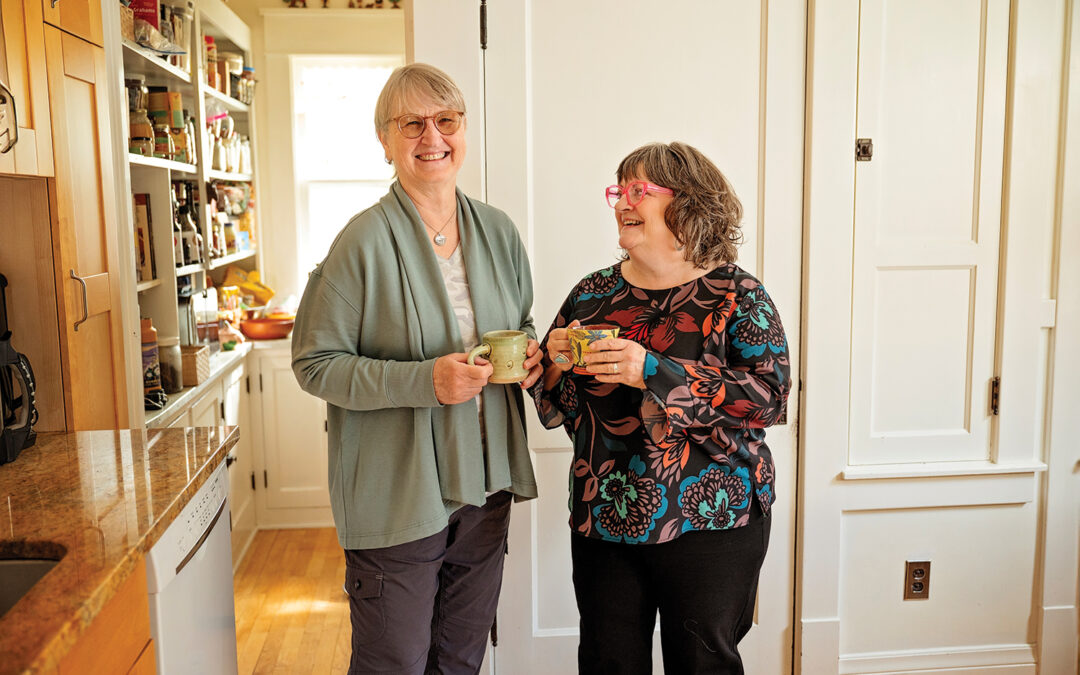
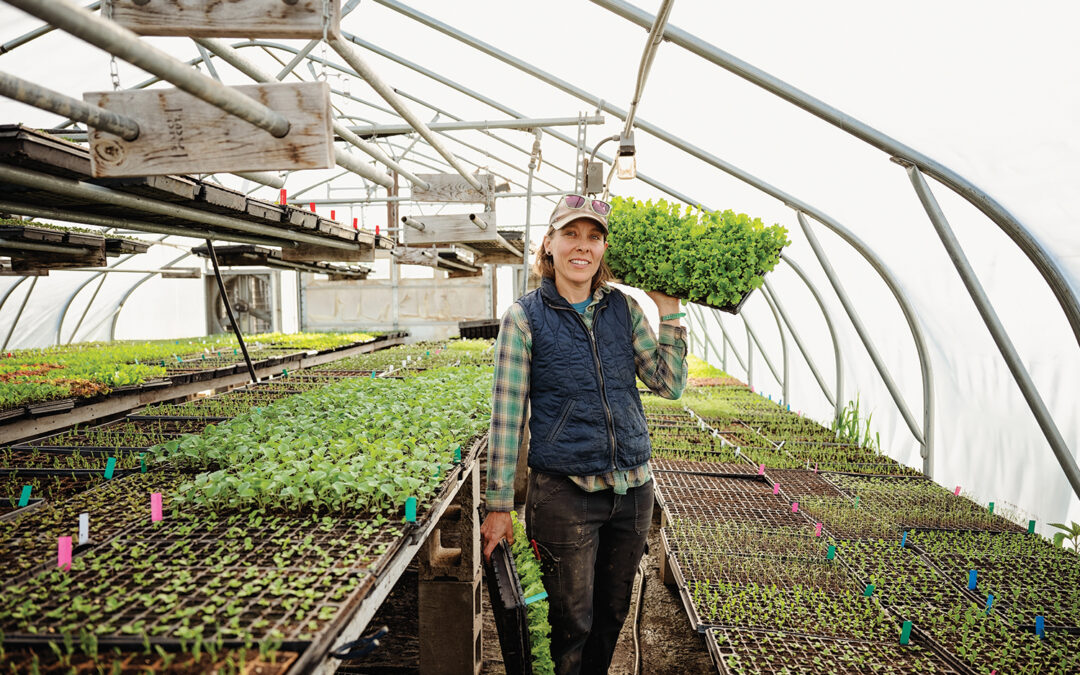
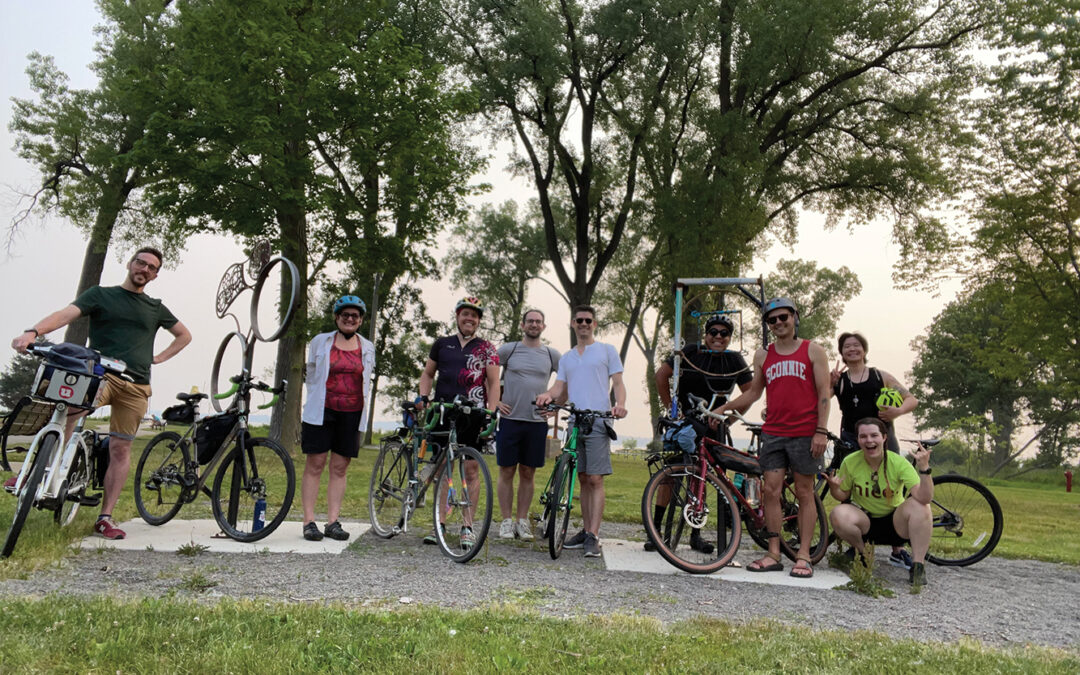
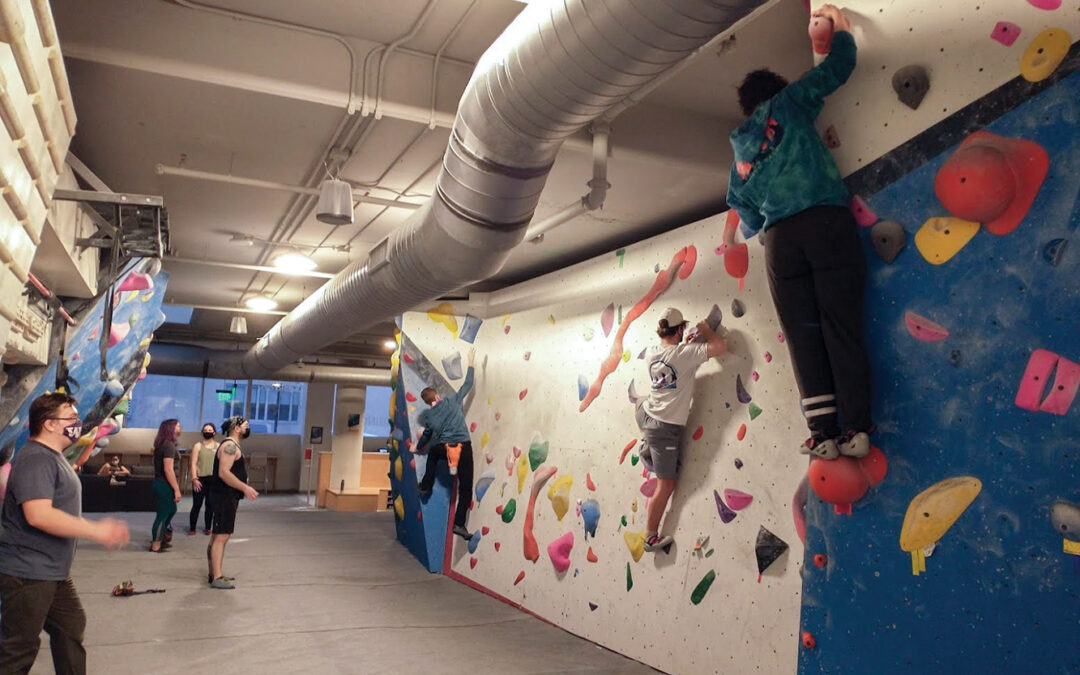
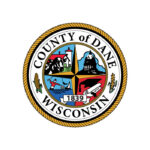



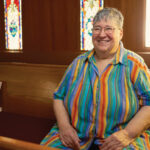




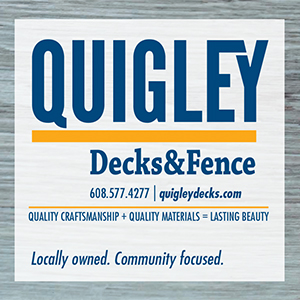
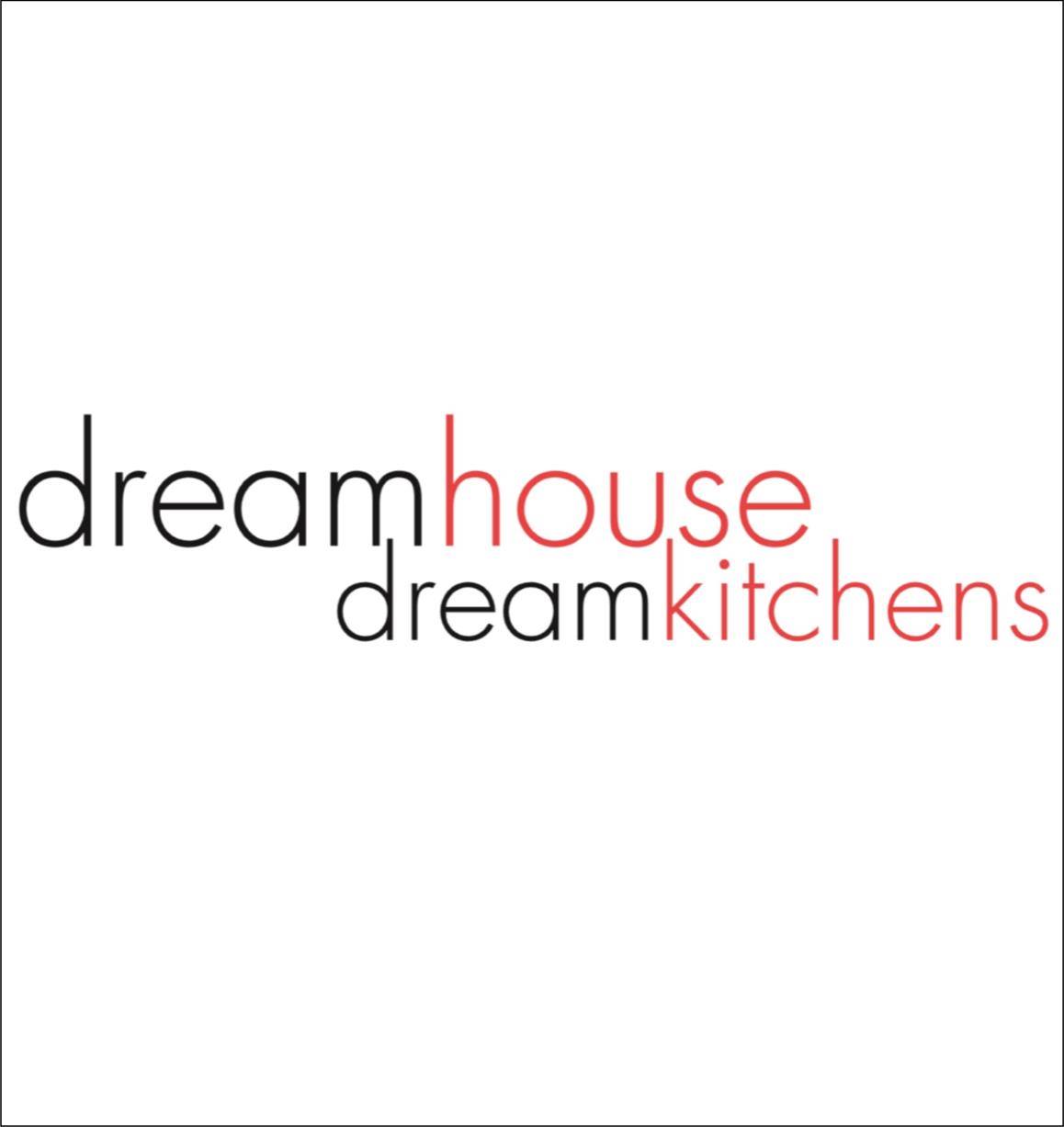




0 Comments